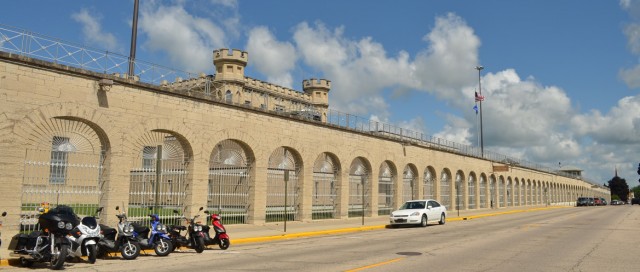Wisconsin is known as a beautiful state, filled with bucolic prairies and woodlands, beautiful cities and farms, as well as a diverse population committed to improving our State. However, once again, a national report cites Wisconsin as the most racially disparate in criminal justice. A recent report by the Sentencing Project found that Wisconsin prisons still lead the nation in racial disparity. In 2011, the majority of people held in Wisconsin prisons were people of color. Now, after ten years of investigations, reports, debate, and outrage, Wisconsin retains this dubious, and sad, distinction. If Wisconsin was last in education, or health care, Wisconsin citizens would find it unacceptable, but this outrageous level of criminal injustice continues.
We, the Justified Anger Criminal Justice Work Table, are an ad hoc group formed on May 22, 2017, to focus on a collaborative, system-wide effort to eliminate racial disparities in the criminal justice system of Wisconsin. This is not the first group to study racial inequity in criminal justice; we lean on the champions of the past, support current leaders committed to improvements, and look to future leaders to build a more equitable and fair Wisconsin.
Wisconsin has done better in the past, and, working together, we can change and once again be a national leader in criminal justice reform. Our incarceration system was created years ago by people who believed it would keep us safer. It can now be changed by all of us recognizing that — as it presently works — our system destroys lives and ruptures communities, and does little to keep us safer. Simply put, “Lock ‘em up longer” is not a system based on 21st Century principles, fails to achieve our goals, and is a system we can no longer accept.
While incarceration is necessary at times — for certain individuals and crimes — to protect people and property, all modern research shows that mass incarceration does not reduce crime, and is a system Wisconsin can no longer financially afford. We acknowledge the tragedies that have harmed Wisconsin families. We share that pain. However, that should not stop the State of Wisconsin cities and counties and residents from demanding better justice. Rather, our current realities should serve as a clarion call for increased effort to craft a more rational and demonstrably effective and just system.
We, the Justified Anger Criminal Justice Work Group, support changes that will return sanity to our criminal justice system, reduce the disturbing racial disparity in our prisons, foster stronger communities, all while still protecting people and property. We recommend:
- Providing an incentive for rehabilitation while incarcerated by reinstating a parole system that recognizes individuals can change.
- Avoiding costly and needless incarceration by offering — for certain crimes and individuals — alternatives to, and diversions from, criminal convictions and incarceration.
- Supporting reentry programs for formerly incarcerated men and women — recognizing that access to job training, education, and mental health and substance abuse programs, will stop the revolving prison door.
Supporting rehabilitation programs in prison, alternatives and diversion from prison, and offering help after release from prison, does not make one “soft on crime.” These modern approaches, instead, are more effective in reducing our costly prison population, reducing recidivism, and keeping families and communities intact and strong. And these modern approaches, when contrasted with a knee jerk “Lock ‘em up longer” approach, achieve real results at a fraction of the cost of keeping a person incarcerated.
We must see “Lock ‘em up longer” as a failed approach, and one that does not recognize all we have learned about incarceration in the 21st Century. The use of this failed approach has led Wisconsin to the bottom in criminal justice, and disturbing racial disparity in our prisons.
We must solve this problem. Working together, we will.
The views expressed in this opinion piece do not necessarily reflect those of 365 Media Foundation or its staff, board of directors or funders.




























